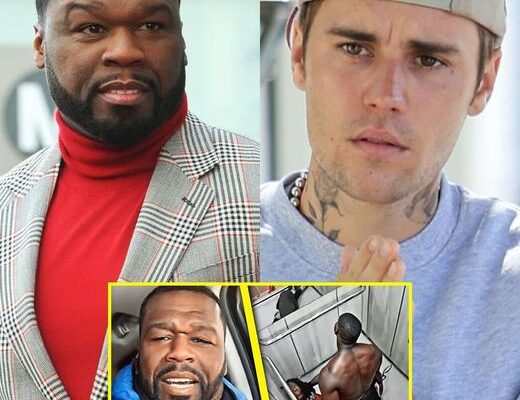The most gut-wrenching sense of the word. Diddy, fueled by jealousy and rage, unleashed his fury on Kim Porter, the woman who had stood by his side through thick and thin.
It was a brutal betrayal of trust, a stark reminder of the darkness that lurked beneath Diddy’s charismatic facade.
But the horrors didn’t end there. In a chilling revelation, it came to light that Diddy’s abuse extended beyond physical violence.
He wielded sex tapes and explicit videos as weapons of manipulation and control, using them to coerce and blackmail those closest to him.
Cassie, once the object of Diddy’s affection, found herself ensnared in a web of deceit and degradation. Forced into unspeakable acts and subjected to relentless psychological torment, she lived in constant fear of Diddy’s wrath, trapped in a nightmarish cycle of abuse.
And yet, amidst the darkness, there were whispers of courage and resilience. Voices like 50 Cent dared to speak out, shining a light on Diddy’s atrocities and refusing to let him hide behind his fame and fortune.
With each revelation, the facade crumbled, exposing the true nature of the man once hailed as a music mogul.
As the allegations piled up and the evidence mounted, Diddy’s empire teetered on the brink of collapse.
No longer could he evade accountability or escape the consequences of his actions.
The time had come for justice to be served, for the victims to reclaim their power, and for the truth to prevail over the lies that had shrouded Diddy’s reign for far too long.
The aftermath of Diddy’s reign of terror is a harrowing tale of abuse, manipulation, and betrayal.
Kim Porter, once a vibrant presence in Diddy’s life, bore the brunt of his violent outbursts.
The incident on the yacht, where Diddy broke her nose, was just the beginning of her ordeal. Despite flying in specialists to conceal the evidence of his brutality, the scars ran deep, both physically and emotionally.
But what’s even more chilling is the systematic erasure of Kim’s suffering from the public eye. Stories vanished from the internet, images disappeared, leaving behind only fragments of the truth. Yet, whispers persisted, fueled by accounts from those who bore witness to Diddy’s cruelty.
Mark Curry’s testimony, Jean Deal’s account, and Columbus Short’s harrowing experience paint a damning picture of Diddy’s depravity.
From wiretapping phones to drugging women, his methods knew no bounds. Kim, Cassie, Misa Hilton, all ensnared in his web of deceit, forced to endure unspeakable horrors in silence.
And then there’s the book, the tell-all that threatened to expose Diddy’s darkest secrets.
Kim’s alleged manuscript, a damning indictment of his character, held the power to unravel his carefully constructed facade. But before the truth could be revealed, tragedy struck, and Kim’s voice was silenced forever.
As the dust settled and Diddy’s empire crumbled, questions lingered. Was justice truly served? Could the victims ever find peace? And amidst the wreckage, one thing remained clear: Diddy’s legacy would forever be tarnished by the stains of his heinous crimes.
The narrative surrounding Diddy’s alleged actions and behaviors unveils a complex web of power dynamics and societal norms within the entertainment industry. Beyond mere gossip, it delves into the darker corners where power, influence, and identity intersect.
At the forefront is the alarming pattern of abuse, both physical and emotional, that numerous individuals claim to have experienced at the hands of Diddy.
The accounts paint a picture of a man who wields his influence to control and manipulate those around him, regardless of gender or sexual orientation.
This abuse is not confined to one sphere but extends across various relationships, from romantic partners like Kim Porter to industry colleagues like Columbus Short.
Moreover, the allegations shed light on the pervasive culture of silence and complicity that enables such behavior to persist.
Despite whispers and rumors circulating for decades, few have dared to speak out openly against Diddy, whether out of fear for their careers or concerns about societal backlash.
Even when confronted with evidence or confronted by media figures like Wendy Williams, Diddy has managed to deflect or silence dissent, further perpetuating the cycle of impunity.
The speculation surrounding Diddy’s sexuality adds another layer to the narrative, revealing the deeply ingrained homophobia that permeates the hip-hop industry and society at large. In an environment where masculinity is prized above all else, any suggestion of deviation from heteronormative norms is met with hostility and ridicule.
Diddy’s own ambiguous lyrics and actions serve as fodder for speculation, fueling rumors and innuendos that further tarnish his reputation.
Yet amidst the controversy and scandal, there lies a broader conversation about power dynamics and accountability within the entertainment industry. As the #MeToo movement has shown, no one is immune from scrutiny, regardless of their status or influence. It’s a reminder that true progress requires confronting uncomfortable truths and holding individuals accountable for their actions, no matter how powerful or influential they may be.
In the end, the allegations against Diddy serve as a cautionary tale about the dangers of unchecked power and the importance of speaking truth to power, even in the face of adversity. Only by shining a light on the darkness can we hope to bring about meaningful change and create a more equitable and just industry for all.
